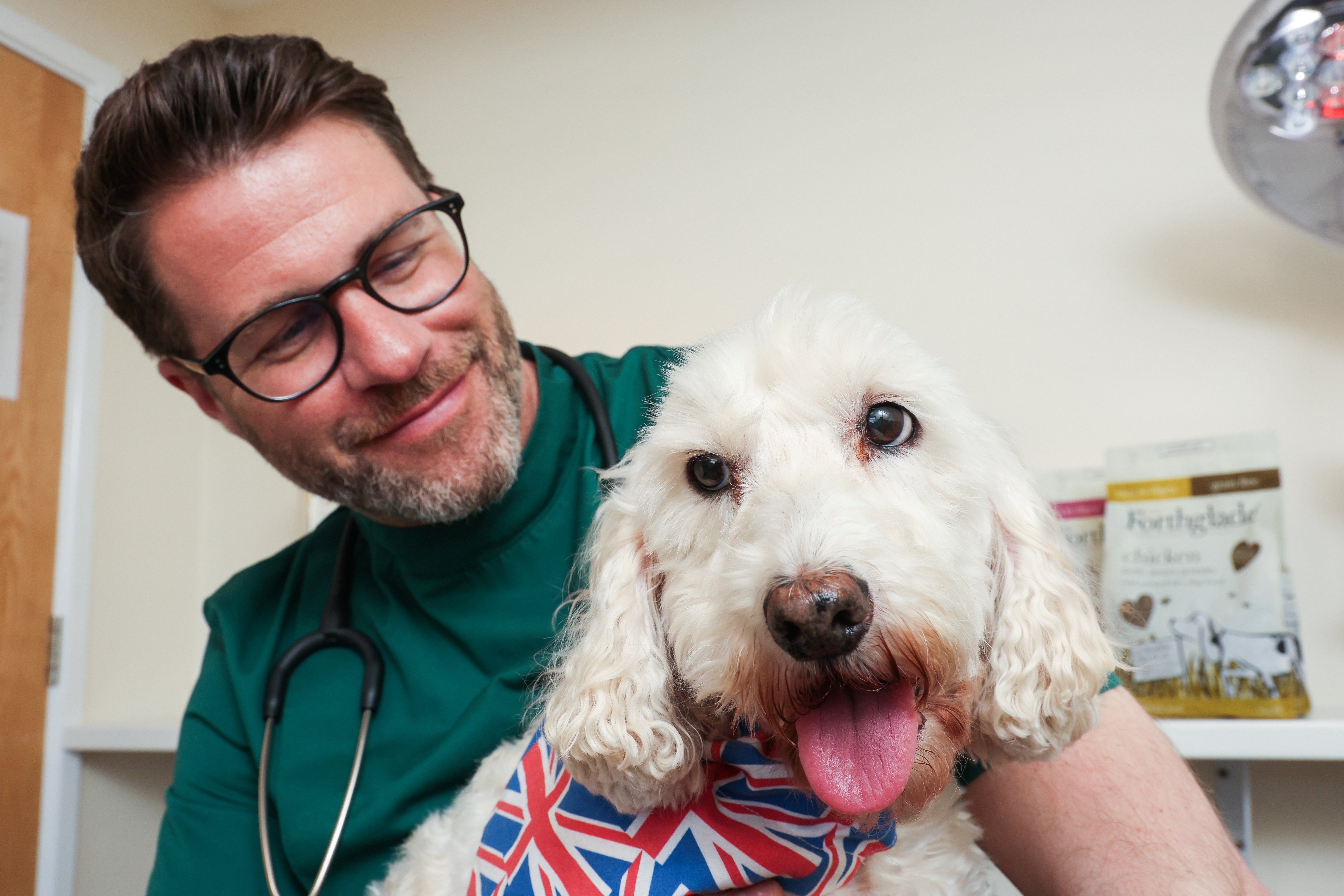New tricks to help care for your old dog
Experts have revealed the top things you should and shouldn’t be doing with your elderly dog

Your support helps us to tell the story
From reproductive rights to climate change to Big Tech, The Independent is on the ground when the story is developing. Whether it's investigating the financials of Elon Musk's pro-Trump PAC or producing our latest documentary, 'The A Word', which shines a light on the American women fighting for reproductive rights, we know how important it is to parse out the facts from the messaging.
At such a critical moment in US history, we need reporters on the ground. Your donation allows us to keep sending journalists to speak to both sides of the story.
The Independent is trusted by Americans across the entire political spectrum. And unlike many other quality news outlets, we choose not to lock Americans out of our reporting and analysis with paywalls. We believe quality journalism should be available to everyone, paid for by those who can afford it.
Your support makes all the difference.Celebrity vet Dr James Greenwood and dog behaviourist Caroline Wilkinson said teaching your old dog new tricks is beneficial when it comes to keeping your old dog healthy and happy in their golden years.
However, expecting them to run long distances, having them struggle on slippery flooring and “replacing” them too soon are big no-nos for your elderly canine companion.
It’s critical to remember a dog’s life cycle runs much quicker than a human’s, so while you may still feel happy going for multi-mile walks or playing rough, they might have moved past this phase.
It comes after research of 2,000 dog owners, commissioned by Forthglade natural dog food, found 43 per cent believe you can’t teach an old dog new tricks.
And nearly a third (31 per cent) would continue treating an elderly dog exactly the same way they would a younger pup - 37 per cent feel unsure if they should even change their dog’s diet as it ages.
But 93 per cent recognise the importance of keeping an old dog mentally stimulated, to keep their brain active.
Caroline Wilkinson said: “It’s absolutely possible to teach an old dog new tricks, to keep it mentally stimulated later in life, and reduce cognitive decline.
“We know that half the time spent on mental activity is just as stimulating for your dog as double the time on physical activity, and so this is a really easy way to keep their life enriched and happy as they get older.”
However more than half of dog owners (51 per cent) cited that they had stopped all behavioural training by the time their dog would be considered senior which is eight – 10 years old.
But nearly nine in 10 (89 per cent) respondents cherish the time they spend with their four-legged friend.
They list playing games (65 per cent), taking their dog to their favourite walk spots (55 per cent) and treating their pup to their favourite foods (53 per cent) as the top ways they spend ‘quality time’ with their dog.
And when it comes to exercise, a quarter of dog owners believe elderly dogs should be walked for 30 minutes a day on average, according to the OnePoll data.
Dr James Greenwood added “As a dog ages, it’s important to keep them moving but be sure to keep it within their own individual capabilities.
“If stiff joints or mobility problems do start to become an issue, speaking to a vet should always be the first step, as lots can be done to keep older dogs mobile”.
Caroline Wilkinson said: “When keeping an older dog healthy, a good diet shout be top of the list.
“Like us humans, not only does a nutritious diet boost their long-term health physically but the stomach is the second brain, so also affects how the dog is feeling.
“If we’re feeding a good diet then the dog’s going to be happier, relaxed and content as well as feeling physically well – a healthy diet helps with everything from energy to play, good behaviour, right through to improving sleep.”
The research follows the launch of Forthglade’s new meals for dogs that are tailored to support their varying needs, from puppies through to seniors.
Caroline Wilkinson’s dos and dont’s for caring for an elderly dog:
Do: Keep an eye out for any changes to your dog both physically but also mentally, and keep a close eye on anything that differs from the norm.
Don’t: Put your own agenda and lifestyle before the dog, ensuring their walks are tailored to their age and try and minimise drastic changes to their lifestyle or routines.
Do: Keep their brain going by engaging with them in simple training exercises, which can have both a physical and mental element.
Don’t: Don’t dismiss an older dog and presume they don’t want to still be active, there is a temptation to think once an old dog gets a condition, we can’t do anything with them anymore.
Do: Make a “bucket list” for your dog, think about the things they really love doing, and that you’d love doing with them, like going to the beach, and help them tick it off in a way that suits their needs.
Don’t: Forget your dog’s physical abilities may be changing. Older dogs may struggle on hardwood floors for example, so putting runners and rugs down will help them with mobility.
Do: Enjoy the moments, and take lots of photos and videos, as dogs’ lives are so short and the memories will last forever.



Join our commenting forum
Join thought-provoking conversations, follow other Independent readers and see their replies
Comments